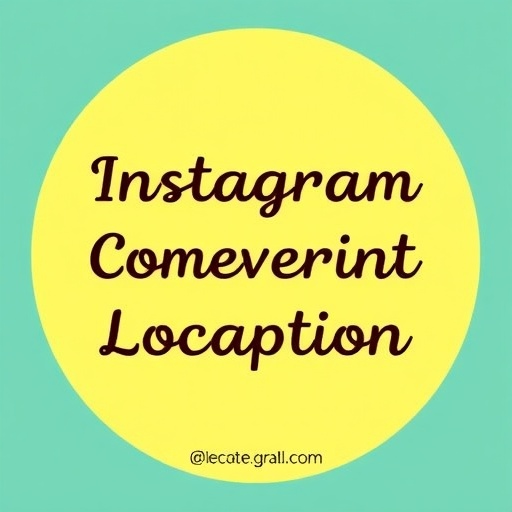In an era where digital platforms redefine the contours of mental health support, a groundbreaking study published in BMC Psychiatry in 2025 investigates the dynamics within an Instagram community dedicated to eating disorder recovery. This qualitative research shines a spotlight on the intricate interplay of motivation and self-confidence among users striving to navigate the difficult road to recovery through online engagement.
Eating disorders notoriously challenge traditional therapeutic approaches, with treatment engagement often hindered by pervasive feelings of shame, stigma, and ambivalence. These psychological barriers complicate the willingness and ability of individuals to seek or adhere to treatment protocols. The novel approach in this study centers on the potential of Instagram recovery communities to bridge gaps left by conventional services, especially for those who might lack physical access or feel isolated by stigma.
The research employed a mixed methods design, collecting data from 205 women with a mean age of 23.14 years who are active participants in an Instagram eating disorder recovery community. Utilizing thematic analysis of responses to open-ended questions, the study elucidated core themes related to participants’ perceived import of change and their confidence in their capacity to initiate and sustain recovery processes.
Findings revealed a noteworthy disparity: users generally rated the importance of change higher than their perceived ability to enact it. This asymmetry underscores a critical psychological tension where motivation exists but is undermined by self-doubt and negative internal narratives. The qualitative data unraveled seven thematic areas central to understanding these internal landscapes: Emotional Needs, Management of Illness Factors, External Motivation, Negative Self-Beliefs, Internal and External Resources, and the Intrinsic Characteristics of Eating Disorders themselves.
Emotional needs emerged as a profound driver yet also a source of vulnerability, with participants expressing the necessity for empathy and validation, which they found variably fulfilled within their community interactions. The nuanced management of illness factors pointed to the fluctuating nature of symptoms and the ongoing struggle with ambivalence, a hallmark of eating disorder pathology, complicating sustained engagement with recovery efforts.
External motivation surfaced predominantly through social connectedness, peer support, and community-calibrated accountability. Users described how virtual interactions on Instagram fostered a sense of belonging and hope, which sometimes translated into initial or renewed attempts to seek professional help or adopt recovery-oriented behaviors. Nevertheless, contradictory to these enablers were the entrenched negative self-beliefs that severely compromised users’ confidence, manifesting as pervasive doubt, fear of failure, and self-criticism.
The role of resources—both internal psychological strengths and external practical supports—further distinguished recovery trajectories. Participants underscored the importance of resilience, coping skills, and access to supportive relationships, including mental health professionals, which were enhanced by the community’s informational exchanges and shared experiences.
Importantly, the study sheds light on how the inherent characteristics of eating disorders, such as the complex interplay of control, identity, and psychopathology, shape users’ treatment engagement capabilities. This complexity necessitates tailored interventions that address these unique psychological intricacies rather than one-size-fits-all solutions.
This investigation offers compelling evidence that Instagram recovery communities, far from being mere social hubs, function as adaptive ecosystems that can potentiate help-seeking behaviors among individuals with eating disorders. They provide a platform where stigma can be mitigated through normalization and where ambivalence may be incrementally transformed into tangible motivation. However, these benefits are tempered by the persistent internal barriers that users carry, emphasizing the necessity for integrated approaches combining digital community support with professional clinical interventions.
From a technical standpoint, the mixed-methods framework employed enhances the robustness of findings through the triangulation of quantitative importance and confidence ratings with rich qualitative narratives. This methodological synergy uncovers the layered complexity of user experiences that purely quantitative or qualitative studies might overlook.
The study’s findings hold critical implications for the future design of digital mental health initiatives. By delineating the psychological contours of motivation and self-efficacy in recovery communities, developers and clinicians can better tailor content, interactive features, and referral pathways that effectively scaffold users’ journey towards sustained engagement and change.
Moreover, these results call for greater recognition of online communities not merely as adjuncts but as integral components of modern recovery ecosystems. As mental health care increasingly embraces digital transformation, platforms like Instagram could evolve into vital nodes that democratize access to support and foster peer-led empowerment.
The interplay between the digital realm and mental health recovery encapsulated in this research heralds a shift toward more nuanced, user-centered paradigms of care. It underscores the importance of addressing not only the overt symptoms of eating disorders but also the covert psychological states that influence treatment trajectories, all within the socially charged and rapidly evolving context of social media.
Conclusively, this study acts as a clarion call for continued interdisciplinary research combining psychiatry, social media studies, and behavioral science to fully harness the potential of technology in ameliorating the global burden of eating disorders. The path to recovery in such communities, while fraught with challenges, is illuminated by the shared human drive for change and connection, facilitated now more than ever through digital innovation.
Subject of Research: Investigation of motivation and confidence to change among users of an Instagram community focused on eating disorder recovery.
Article Title: Navigating an Instagram community for eating disorder recovery: a qualitative study of users’ motivation and confidence to change.
Article References:
Albano, G., Teti, A., Gullo, S. et al. Navigating an Instagram community for eating disorder recovery: a qualitative study of users’ motivation and confidence to change. BMC Psychiatry (2025). https://doi.org/10.1186/s12888-025-07591-9
Image Credits: AI Generated




